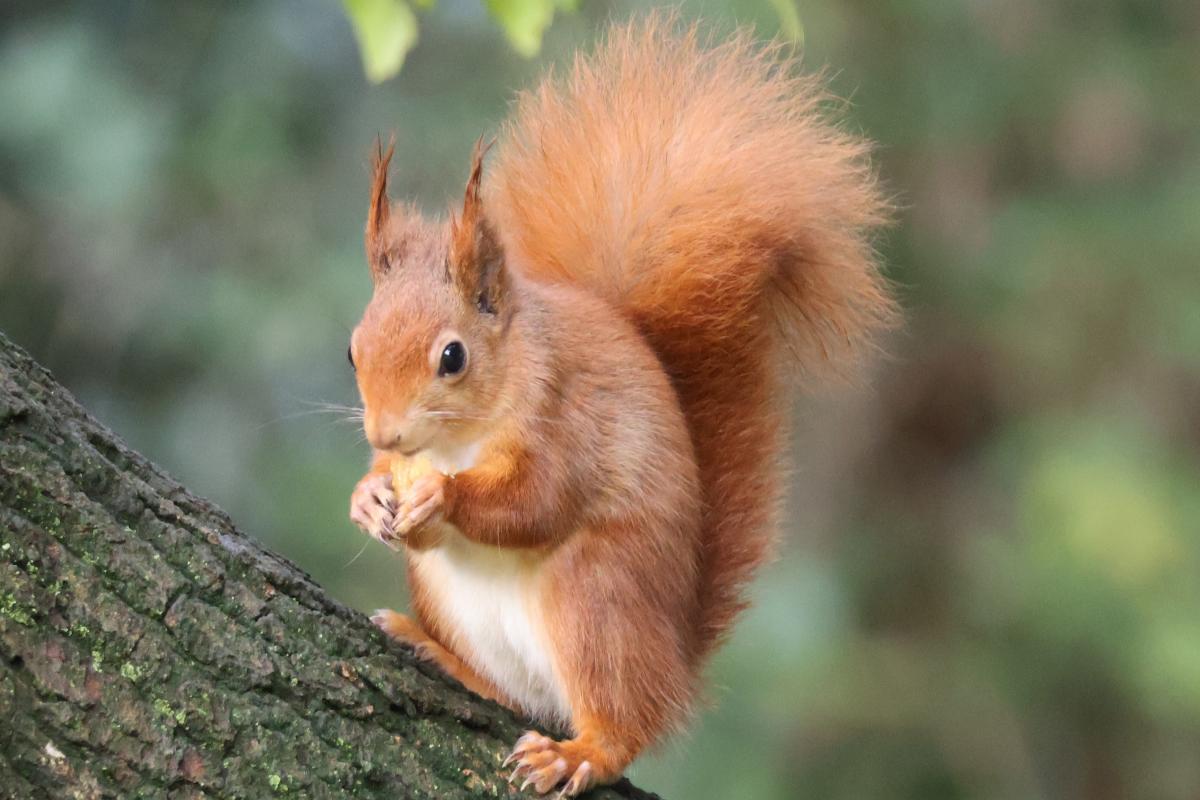Red squirrels are “thriving” on the Isle of Wight, with signs that groups on opposite sides of the Island are starting to mix for the first time, according to a study.
Researchers from Bournemouth University teamed up with the Wight Squirrel Project to gain an understanding of how healthy the populations of the native species were on the Island off the coast of Hampshire.
Red squirrels populations in the UK have been threatened over the years thanks to the prevalence of grey squirrels with habitats limited to locations such as Anglesey, parts of northern England and Scotland.
The new study included genetic analysis of fur samples as well as mapping food availability and the natural environment of the Isle of Wight.
Read more:
The researchers found that there were enough trees and hedgerows to provide for an estimated 3,500 squirrels and a natural availability of seeds to support them.
Alyson Buchanan, a PhD student at Bournemouth University, said: “Island populations face a higher extinction risk than animals on the mainland because of their smaller population and vulnerability to environmental changes.
“Red squirrels on the Isle of Wight are the largest population in southern England and genetically distinct from those across Europe, so it is really important to know how healthy they are to support their conservation.”
Previous research had shown that the squirrel populations on the East and West side of the Island had distinct genetic make-ups, possibly because of roads and large open spaces.
But the study showed signs that the two populations were starting to crossbreed.
Dr Emilie Hardouin, head of the School of Life and Environmental Sciences at Bournemouth University, said: “It is very good news that we found some movement between the two groups.
“Bringing the two gene pools together would help the overall health of future generations of squirrel and help them to adapt to environmental changes. Whilst we still have the two different populations, it is very encouraging to have a gene flow between them.”
Ms Buchanan added: “As it stands, things look good for the Island’s squirrels and we don’t think there is a high extinction risk for them.”
Providing advice to residents on how to help feed the squirrels, Helen Butler, of the Wight Squirrel Project, said: “Feeding red squirrels in your garden in times of food shortage, such as the late spring and early summer, helps their survival.
“Unsalted peanuts in a wire feeder, meant for the birds, will initially attract squirrels to your garden. However, too many peanuts can cause thinning of the bone so please feed a variety of food.
“Fruit is good for them, although hazelnuts and walnuts are the all-time favourites. Never feed brazil nuts, like the peanuts they are far too oily.”

